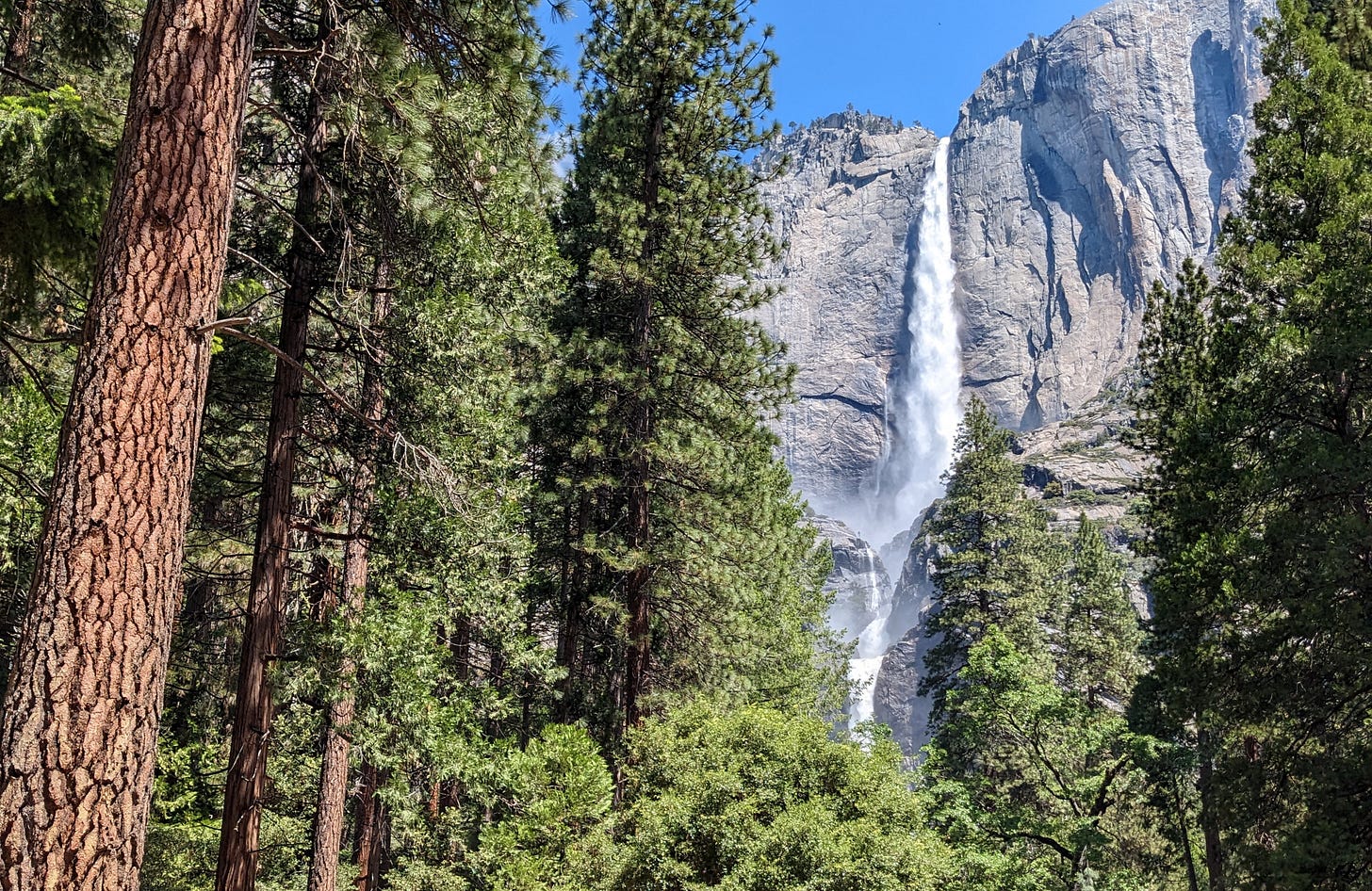On Nature and Finding Balance
Travel photo to ponder while disconnecting from politics for a few days
Let’s take a break from politics. I’ll come back next week, and I’m sure most every week after that, with more about politics and history. There is much to discuss. (Matt Gaetz, really?) But it’s also good to give our minds a break, to find balance, and to disconnect from some of the toxicity still floating around out there.
Aside from turning off social media, or even the news for a while, there are many ways to find an escape from the rancor. Spending time with family or friends, reading a book, watching a movie, relaxing in a coffee shop, cooking a meal, going for a walk, gardening, hitting the tennis courts. Whatever works for you.
This post is about nature, which is a path toward calmness for many people. In this particular case, I’m intrigued by how a couple of 19th century writers found divergent paths to similar conclusions about nature. As well as a shared sense of the interconnectedness of the world, a sentiment we could use more of in politics these days.
Yosemite and Nature, Emerson and Muir
The above photo is of Yosemite Falls in California’s Yosemite National Park. John Muir first visited Yosemite in 1868 and spent most of the next six years there. He hiked the Sierra Nevadas, climbed mountains, and slept in the open air. Through it all, he developed an intimate connection with the natural world. Muir then spent the rest of his life writing about the wonders of nature, founding the Sierra Club, and lobbying for the creation of national parks.
While in Yosemite, Muir carried with him some of the writings of Ralph Waldo Emerson. Interestingly, Emerson was not only from the other side of the continent but was also more of a thinker; he didn’t scale mountains. He no doubt walked miles around the farms and woods near his Massachusetts home, perhaps many of them with his friend Henry David Thoreau, but he was most at home in his study or on the lecture circuit. Yet he ended up in a similar place as Muir did in terms of sensing man’s connection to nature.
In 1836, three decades before Muir found himself at Yosemite, Emerson published Nature, a book length essay that helped lay the foundation for Transcendentalism. Emerson made the point that nature isn’t separate from humanity. Rather, nature and humanity are interwoven and inseparable from each other.
So if you’re looking for some (non-politics) thoughts to ponder in the next few days or weeks, here are a few quotes each from Emerson and Muir on nature and interconnectedness.
From Emerson:
“I feel that nothing can befall me in life — no disgrace, no calamity, which nature cannot repair … I see all; the currents of the Universal Being circulate through me; I am part or particle of God.”
“Who looks upon a river in a meditative hour, and is not reminded of the flux of all things?”
From Muir:
"The clearest way into the Universe is through a forest wilderness."
“Nature's peace will flow into you as sunshine flows into trees."
And, from each of them, a thought on the interconnectedness of the world:
“A leaf, a drop, a crystal, a moment of time, is related to the whole, and partakes of the perfection of the whole.” - Emerson
“When we try to pick out anything by itself, we find it hitched to everything else in the universe.” - Muir
…
Good luck finding your own balance and disconnecting from some of the craziness, so we can all come back refreshed!
See more Travel Photos here.


